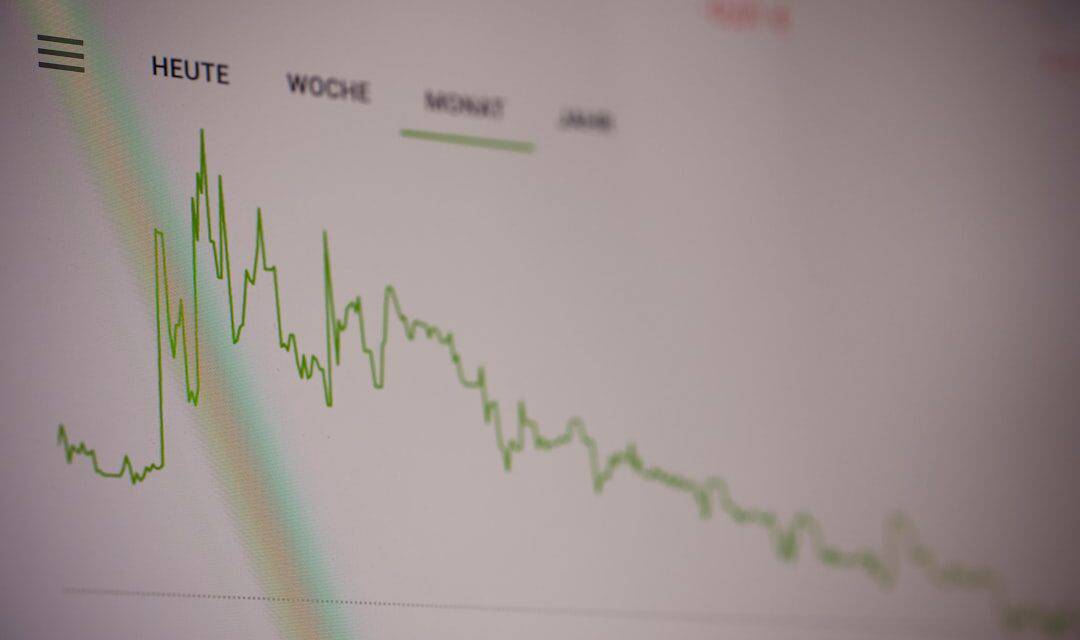The stock market is a complex and dynamic system influenced by numerous factors, including economic indicators, geopolitical events, and corporate performance. Modern investors face a multitude of opportunities and challenges as they navigate the intricacies of the financial world. The advent of technology and globalization has increased market interconnectedness, allowing events in one region to impact markets globally.
Consequently, investors must remain informed and vigilant to make sound investment decisions in the current market environment. Recent years have seen significant stock market volatility, characterized by rapid price fluctuations and increased uncertainty regarding future market directions. This volatility presents both opportunities and risks for investors seeking to capitalize on market movements while managing their exposure.
The emergence of new investment vehicles, such as exchange-traded funds (ETFs) and robo-advisors, has expanded market accessibility and provided investors with novel portfolio management tools. As a result, the stock market has become more accessible to a broader range of investors, but also more complex and competitive. In this environment, staying informed about the latest market trends and developments is crucial for investors to make well-informed investment decisions.
Key Takeaways
- The current market is characterized by volatility and uncertainty, driven by global events and economic indicators.
- Top performers in the stock market include tech companies, renewable energy firms, and healthcare providers.
- Emerging trends and opportunities in the market include ESG investing, digital transformation, and the rise of remote work technologies.
- Key factors affecting stock performance include interest rates, inflation, geopolitical tensions, and corporate earnings.
- Analyst recommendations and forecasts suggest potential growth in certain sectors, such as electric vehicles and cybersecurity.
- Potential risks and challenges in the market include regulatory changes, supply chain disruptions, and the impact of new COVID-19 variants.
- In conclusion, investors should stay informed, diversify their portfolios, and consider long-term strategies to navigate the current market conditions.
Top Performers in the Stock Market
Top Performing Companies
One such company is Amazon, which has seen its stock price soar in recent years as it continues to dominate the e-commerce industry and expand into new markets such as cloud computing and streaming services. Another top performer is Apple, which has continued to deliver strong financial results and maintain its position as a leader in the technology sector. Additionally, companies such as Microsoft, Alphabet (the parent company of Google), and Facebook have also been top performers in the stock market, driven by their innovative products and services and strong financial performance.
Top Performing Sectors
In addition to individual companies, certain sectors have also emerged as top performers in the stock market. For example, the technology sector has been a standout performer in recent years, driven by the rapid growth of companies such as Amazon, Apple, and Microsoft. The healthcare sector has also delivered strong returns for investors, fueled by innovation in pharmaceuticals and biotechnology.
Strong Returns Across Sectors
Furthermore, the financial services sector has rebounded from the global financial crisis and delivered strong returns for investors as interest rates have risen and economic conditions have improved.
Investment Opportunities
Overall, there are a number of companies and sectors that have emerged as top performers in today’s stock market, providing opportunities for investors to capitalize on their success.
Emerging Trends and Opportunities

In today’s stock market, there are a number of emerging trends and opportunities that investors should be aware of in order to capitalize on potential growth. One such trend is the rise of sustainable investing, which has gained traction as investors seek to align their portfolios with their values and support companies that are making positive social and environmental impacts. This trend has led to the growth of sustainable investment funds and increased attention on environmental, social, and governance (ESG) factors in investment decision-making.
As a result, companies that are focused on sustainability and responsible business practices may present attractive investment opportunities for those seeking to align their portfolios with their values. Another emerging trend in today’s stock market is the rise of artificial intelligence (AI) and machine learning, which are transforming industries and creating new opportunities for investors. Companies that are leveraging AI and machine learning technologies to drive innovation and improve efficiency may present compelling investment opportunities as these technologies continue to disrupt traditional business models and create new sources of value.
Additionally, the rise of e-commerce and digital payments has created opportunities for companies that are positioned to benefit from the shift towards online shopping and digital transactions. As consumers increasingly turn to online channels for their shopping needs, companies that are able to capitalize on this trend may present attractive investment opportunities for those seeking exposure to the digital economy.
Key Factors Affecting Stock Performance
| Factors | Description |
|---|---|
| Economic Indicators | Includes GDP, inflation, unemployment rate, and consumer confidence. |
| Company Performance | Revenue, earnings, and growth prospects of the company. |
| Market Sentiment | Investor perception, market trends, and news sentiment. |
| Interest Rates | Impact on borrowing costs, consumer spending, and corporate profits. |
| Geopolitical Events | Political instability, trade tensions, and global conflicts. |
There are a number of key factors that can affect stock performance in today’s market, ranging from macroeconomic indicators to company-specific developments. One such factor is interest rates, which can have a significant impact on stock prices as they influence borrowing costs, consumer spending, and corporate profitability. When interest rates are low, borrowing costs are reduced, which can stimulate economic activity and support higher stock prices.
Conversely, when interest rates rise, borrowing costs increase, which can dampen economic activity and put downward pressure on stock prices. As a result, changes in interest rates are closely watched by investors as they assess the potential impact on stock performance. Another key factor affecting stock performance is corporate earnings, which provide insight into a company’s financial health and growth prospects.
Strong earnings growth can drive stock prices higher as investors anticipate future profitability, while weak earnings can lead to declines in stock prices as investors reassess their expectations for a company’s performance. In addition to earnings, other company-specific factors such as product launches, mergers and acquisitions, and regulatory developments can also impact stock performance. For example, a successful product launch or strategic acquisition can boost investor confidence and drive stock prices higher, while regulatory challenges or legal disputes can weigh on stock prices as investors assess the potential impact on a company’s operations.
Analyst Recommendations and Forecasts
Analyst recommendations and forecasts play an important role in shaping investor sentiment and influencing stock performance in today’s market. Analysts provide research and insights on individual companies and sectors, offering recommendations on whether to buy, hold, or sell a particular stock based on their analysis of company fundamentals and market trends. These recommendations can have a significant impact on investor behavior as they assess the potential risks and rewards of investing in a particular stock.
In addition to recommendations, analysts also provide forecasts for key financial metrics such as earnings per share, revenue growth, and profit margins, which can provide valuable insights into a company’s future prospects. In today’s market, analyst recommendations and forecasts are widely followed by investors as they seek to make informed investment decisions. Positive recommendations and bullish forecasts can drive investor enthusiasm and support higher stock prices, while negative recommendations and bearish forecasts can lead to selling pressure and declines in stock prices.
As a result, it is important for investors to consider analyst recommendations and forecasts as part of their investment research process in order to gain insights into potential opportunities and risks in the market. However, it is also important for investors to conduct their own due diligence and consider a range of factors beyond analyst recommendations in order to make well-informed investment decisions.
Potential Risks and Challenges

Market Volatility: A Key Risk to Consider
One significant risk is market volatility, which can lead to rapid fluctuations in stock prices and create uncertainty for investors. This volatility can be driven by a wide range of factors, including geopolitical events, economic indicators, and company-specific developments, making it difficult for investors to predict market movements with certainty.
Regulatory Uncertainty: A Challenge for Companies
Another potential risk in today’s stock market is regulatory uncertainty, which can impact companies across various industries as they navigate changing regulations and government policies. Regulatory challenges can create compliance costs for companies and impact their ability to operate profitably, leading to declines in stock prices as investors assess the potential impact on a company’s operations.
Geopolitical Risks: A Threat to Global Markets
Additionally, geopolitical risks such as trade tensions and political instability can create uncertainty for investors as they assess the potential impact on global markets and economic growth. As a result, it is important for investors to consider potential risks and challenges as part of their investment strategy in order to manage their portfolios effectively.
Conclusion and Final Thoughts
In conclusion, today’s stock market presents a wide range of opportunities and challenges for investors as they seek to navigate the complexities of the financial world. With the rise of technology and globalization, the stock market has become more interconnected than ever before, creating new opportunities for investors to access global markets and capitalize on emerging trends. However, there are also potential risks and challenges that investors must be aware of as they seek to manage volatility and uncertainty in today’s market.
By staying informed about key factors affecting stock performance, considering analyst recommendations and forecasts, and being mindful of potential risks and challenges, investors can make well-informed investment decisions that align with their financial goals. As investors continue to navigate today’s stock market, it is important for them to conduct thorough research and consider a range of factors in order to make sound investment decisions. By staying informed about emerging trends and opportunities, understanding key factors affecting stock performance, considering analyst recommendations and forecasts, and being mindful of potential risks and challenges, investors can position themselves for success in today’s dynamic market environment.
While there are no guarantees in the stock market, by staying informed and vigilant, investors can increase their chances of making sound investment decisions that align with their long-term financial goals.
If you’re interested in learning more about the current state of the stock market, you may want to check out this article on onibank.com. It provides valuable insights into the latest trends and developments in stock market stocks.





